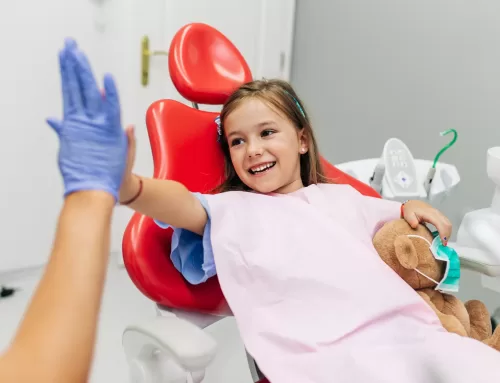Children’s dentists, known as pediatric dentists, are committed to the dental wellbeing of children from infancy to their teenage years. They have the qualification and experience to take care of a child’s gums, teeth, and mouth all through the different phases of childhood.
Baby teeth begin to fill in during the initial 6 months of growth. Normally, by age 6 or 7, they begin to lose their first group of teeth, which ultimately get replaced by their permanent adult teeth. It is extremely important to ensure children get started with proper dental care early to prevent disease and oral decay that can cause complications and pain throughout their life.
What kind of training do pediatric dentists have?
Make sure your pediatric dentist is board certified by the American Board of Pediatric Dentistry. Pediatric dentists have completed at least 6 years of training including 4 years of dental school followed by two years of specialty training in dental care for children that focus on the special needs of infants, adolescents, and teens.
What types of treatments do pediatric dentists provide?
Pediatric dentists provide comprehensive oral health care that includes the following:
- Infant dental health exams including assessing risk for children.
- Prevention including cleaning and fluoride treatments, as well as diet and nutrition.
- Counseling on the habits of thumb sucking and pacifier use.
- Early detection and treatment for improper bite and teeth straightening.
- Restoration of defects or tooth cavities.
- Analysis of dental conditions such as congenital heart defect, diabetes, hay fever, asthma, and hyperactivity/attention deficit disorder.
- Care for dental damage to teeth.
How pediatric dentists are different.
The AAPD details the approach that pediatric dentists use when caring for young children, including:
- Tone – Pediatric dentists may use a more affectionate or calming tone for children to establish trust.
- Tell-show-do – A process by which the pediatric dentist describes the treatment in a way the child can understand, exhibiting the treatment in a simple manner, and then begin the procedure.
- Positive reinforcement – Recognize and praise children for good oral behavior, including following directions and sitting still.
Pediatric dentists provide the best dental care for children.
Children are not always good at being cooperative and patient during a dental examination. Pediatric dentists have the training to treat children and conduct dental exams in a way that will make them comfortable. Also, pediatric dentists use specialized dental equipment made for children and decorate their dental office for children.
A pediatric dentist provides a broad range of dental treatment options, and have additional years of expertise and training to care for children’s teeth, gums, and mouth. When your pediatrician recommends that your child get a dental exam, you can be sure that a pediatric dentist will provide excellent care.
How to find a children’s dentist.
Search for a board-certified pediatric dentist at the American Academy of Pediatric Dentistry website.




